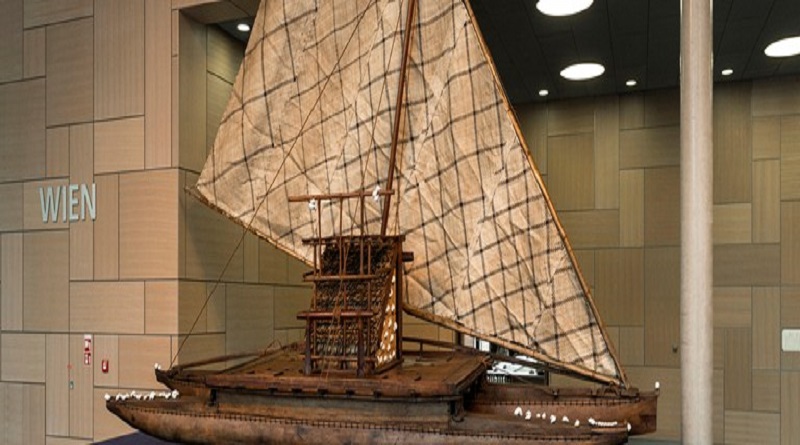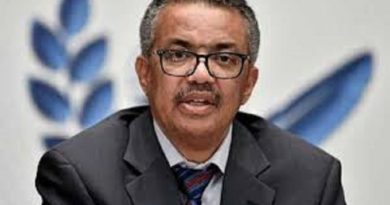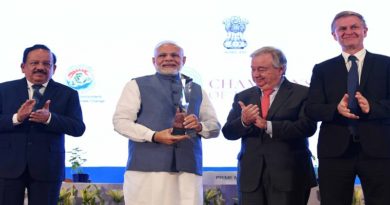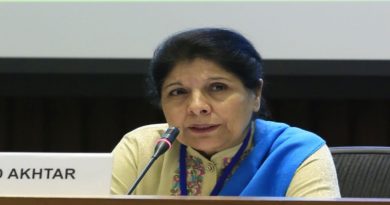Fijian Canoe as symbol of resilience, unity displayed at COP23
A traditional Fijian canoe, or drua, will serve as a powerful symbol of resilience and unity during the UN Climate Change Conference in Bonn (COP23, 6-17 November) in Bonn.
The drua is a traditional double-hulled, open ocean sailing canoe which was built in Fiji some three years ago. Fiji has the Presidency of the United Nations Climate Change Conference this year.
“This canoe is a terrific example of Fijian skills, and it also exemplifies the resilience of the ancient culture of the Pacific in the face of adverse impacts of climate change,” says Nick Nuttall, Director of communications at UN Climate Change and COP23 spokesperson.
As a vulnerable island state, Fiji is already experiencing severe impacts such rising sea levels and stronger storms. Ensuring the Paris Climate Change Agreement is fully implemented – a core task being taken forward in Bonn in November – is crucial for the very survival of the island.
“We need COP23 to accelerate climate action,” says Nick Nuttall. “The meeting is a staging post on our irreversible path to a low-carbon future, a path that we need to go on further, faster, together.”
“Whole world in the same canoe”
This week, the drua was delivered to the World Conference Center Bonn (WCCB), which is the heart of the so-called “Bula” Zone of COP23, in which formal UN climate negotiations will take place.
“This is a very emotional moment,”said Peniana Lalabalavu, Deputy Secretary in the Office of the Prime Minister of Fiji and chief coordinator for the COP23 Presidency. “The drua connects Fijian culture and traditions with Bonn, and with international climate change negotiations. It symbolizes that Fiji will be leading the world to look for solutions, and to step up climate action.”
“The drua is also a symbol of how the whole world really is in the same canoe when it comes to climate change.”
Deutsche Post DHL is helping Fiji and the UN
The drua was brought to Bonn from its owner, Britain’s National Maritime Museum, by international logistics company Deutsche Post DHL, which is headquartered in Bonn.
“Since we are in the logistics business, we are a major player in creating greenhouse gas emissions,” says Christof Ehrhart, who leads DHL corporate communications and sustainability: “We are aware that we have a responsibility.” That’s why it came “natural” to DHL to offer support to Fiji in getting the drua transported to Bonn, Ehrhart said.
Deutsche Post DHL is an official COP23 partner to both the Republic of Fiji and to UN Climate Change, providing climate-neutral transport, as well as making space in the vicinity of the conference zone available to host a temporary tent structure, and providing parking spaces for bicycles.
Symbol of Fijian skills
As some twelve men were carefully lifting the drua’s hull from the DHL trailer, Steven Hooper hurried to lend them a hand. Hooper is a social anthropologist with the University of East Anglia in the UK who specializes in the arts of the Pacific region.
“The canoe is made of tropical hardwood, and there is no metal in it,” he explained. “It is tied together entirely with coconut fiber string. And the shells attached to it represent a high status.”
“This drua, called Adi Yeta, is a symbol of Fijian skills and ingenuity,“ Hooper said.
But for Monika Hörig, spokesperson for the city of Bonn, the drua also manifests something else:
“This canoe illustrates the vulnerability of such a small island nation as Fiji, and the exposure to the effects of climate change of these Pacific islands which to many people in Bonn are still a dream destination.”




